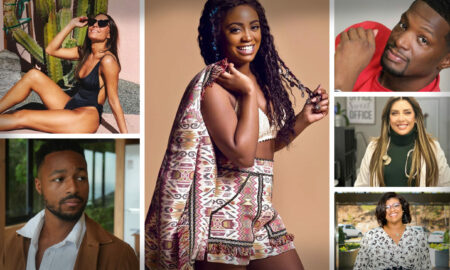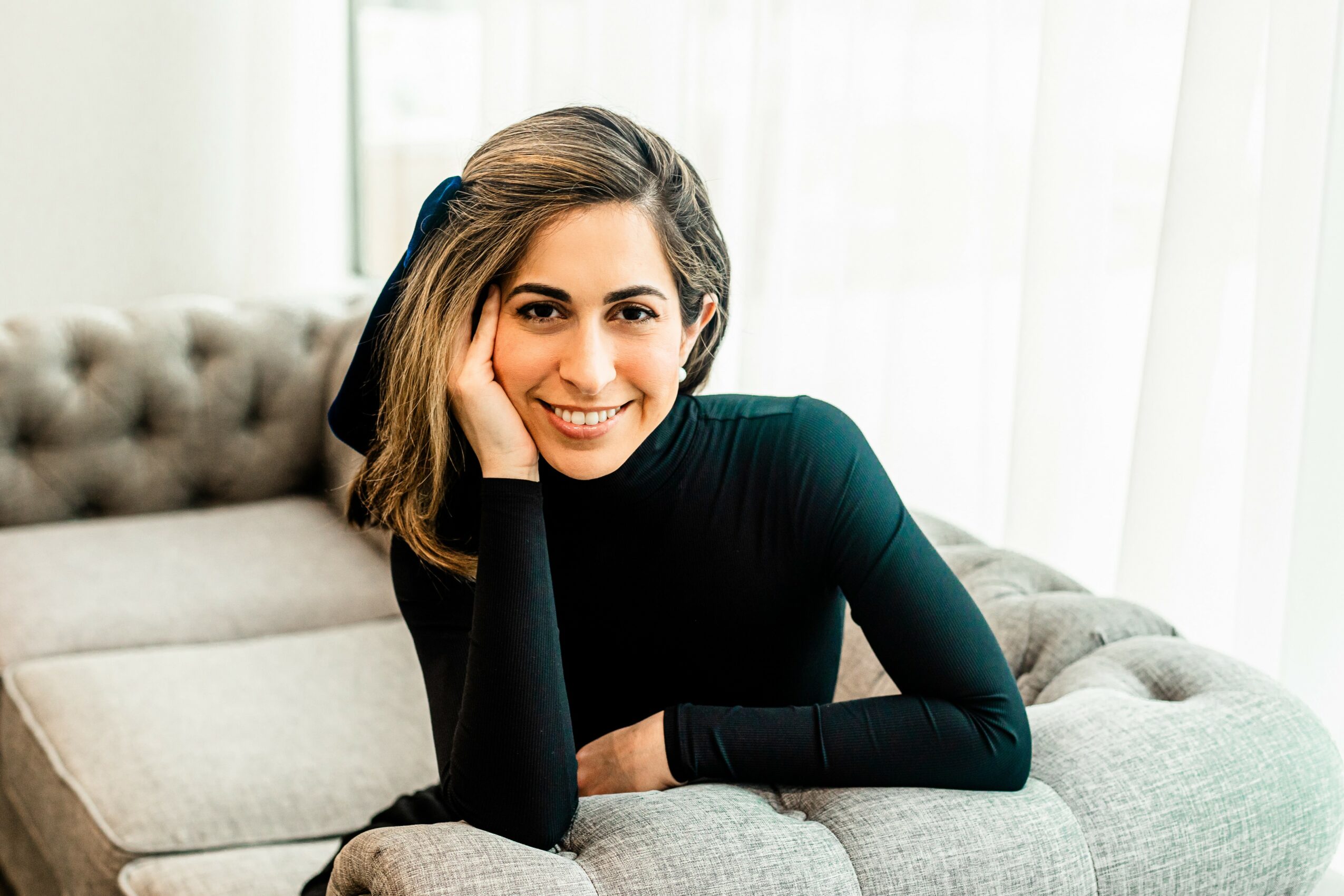

We’re looking forward to introducing you to Gilly Kahn. Check out our conversation below.
Hi Gilly, thank you for taking the time to reflect back on your journey with us. I think our readers are in for a real treat. There is so much we can all learn from each other and so thank you again for opening up with us. Let’s get into it: Are you walking a path—or wandering?
I’ve done a bit of both. I like having a working draft of a life plan. But there were times when I surprised myself and pivoted.
For example, when I was 14, I set the goal to become a published author one day. But when I reached my senior year of high school, I chickened out and worried that creative writing was not a stable career. So I majored in Psychology with the plan to become a clinical psychologist. Once I started college at the University of Miami, I decided I couldn’t do without writing, so I ended up double majoring in both Psychology and Creative Writing, with the thought that I would definitely become a psychologist and that maybe (if I’m lucky) I’ll also publish.
The thing is that once you get your foot in the door and begin on the path to becoming a clinical psychologist, you end up having barely any time left to write. Creative writing and other forms of art require time, and time was a rare commodity for me during my 8 years as a graduate student (I first earned a master’s in Experimental Psychology before shifting into my Clinical Ph.D. program). Then, add to that getting married and becoming a mom of two, and I was struggling with finding any time for myself, let alone for a second career.
My decision to finally sit down and write a book was somewhat spontaneous. I describe that time in “Allow Me to Interrupt: A Psychologist Reveals the Emotional Truth Behind Women’s ADHD,” which was just released in September 2025. But once I committed to writing my book, oh boy, was I in. From start to finish (from the day that I decided I’d write the book through launch day), the process took me a bit over two years. And although some days were harder than others, I loved every minute of it.
Can you briefly introduce yourself and share what makes you or your brand unique?
I am a clinical psychologist, a mom, and a writer living in Atlanta, Georgia. I specialize in neurodiversity and emotional dysregulation, especially in teens. My first book is about the often overlooked emotional dysregulation component of attention-deficit/hyperactivity disorder (ADHD) in girls and women. I was late-diagnosed with ADHD after wondering about whether I had it for years.
After my husband and I sensed that our daughter probably had ADHD, I went and sought out help for myself, and then I did the same with my daughter for her ADHD. Learning about rejection sensitivity dysphoria (RSD) and its relation to ADHD, especially in females, was eye-opening to me because I have a history of struggling with extreme sensitivity to rejection, and I noticed the same challenges in many of my clients with ADHD. Because there were so few books about this topic, especially focusing on females, it was hard for me to find the right resources to recommend to my clients. That was the main reason I decided to write my book about ADHD and emotional dysregulation/RSD in girls and women.
Thanks for sharing that. Would love to go back in time and hear about how your past might have impacted who you are today. What’s a moment that really shaped how you see the world?
I’ve had a few of these types of moments, but the memory I’ll call on right now is about when I was 19 and working at a school for autistic children over the summer. I’ve been thinking about those kids a lot lately, as I have been reading and listening to many books about autism.
That summer inspired a lot of my work, both as a psychologist and as a writer. At the same time that I worked at the school, my husband (then boyfriend) gave me the book, “The Curious Incident of The Dog in the Night-Time” by Mark Haddon. I read the entire book in a week, which was highly unusual for me with my easily distracted ADHD brain. There was something about the way autistic children interacted with the world that truly moved me. By then, I had worked with children in different settings, and I already knew I wanted to work with children as a psychologist one day. But the way I deeply loved those autistic kids was different. Making them smile felt like the biggest accomplishment of my day, and I just wanted to keep feeling that feeling.
So after that experience, I went back to the school a couple of times to visit the kids and to watch them grow. My research in college focused on friendship and social withdrawal, and when I got to graduate school, every supervisor and colleague knew I wanted all of the clinical cases who were autistic. Because autism co-occurs with ADHD a lot of the time, many of the kids I worked with had ADHD. And so I grew to develop years of experience working with children and adults who are neurodivergent, until eventually I got my ADHD diagnosis, along with my daughter’s.
Was there ever a time you almost gave up?
I almost gave up on pursuing creative writing as a career. I’ve probably “given up” on creative writing a few times, but the first solid time I actively decided to give up trying was when I started college. By high school, I had years of creative writing under my belt. I was a co-editor-in-chief of our school’s literary magazine and I led poetry slams in our school library. I still live and breathe writing. But I worried I would be unsuccessful, so I leaned into my related interest in psychology, and chose to major in that. The thing is that when you are truly passionate about something–I’ve found, especially when you are neurodivergent–it’ll follow you. That’s because everyone has a purpose in life, and when you find it, you just know it. So I took a risk and added creative writing as a second major, and I kept the goal to publish a book one day. And now I’ve fulfilled that goal. Don’t doubt yourself.
So a lot of these questions go deep, but if you are open to it, we’ve got a few more questions that we’d love to get your take on. Is the public version of you the real you?
Kind of.
The pro of having ADHD is that we can be impulsive, which makes it more likely for us to be genuine in our interactions with others–like, ‘what you see is what you get.’ So I’d say overall, I am transparent with others. This has been both helpful and unhelpful in my relationships, depending on the type of relationship. Sadly, I’ve learned that many people cannot handle the real me. Maybe that’s because many people (at least the U.S.) prefer sugarcoating or niceties, and I have a tendency to dive in and to really get to know people. Relationships with me are rarely superficial, and others may find that off-putting. Interestingly, although I’ve faced a few issues in collegial and work relationships, this transparency helps me tremendously in my rapport-building with clients. It’s probably because most of my clients are neurodivergent (like me) and I believe they have an impressive ability to sense when someone is being ‘fake.’
I’m not always fully ‘me’ though, especially in relationships where I feel unsafe and unsupported. For example (and I write about this more in my book), I had a graduate school clinical supervisor who made me feel like absolute garbage. The problem is that when you have ADHD and are already extremely sensitive to rejection, when you are successful at ‘masking’ or pretending everything is okay when it clearly isn’t, it can come off as nonchalant and flat. So my supervisor complained about that. She said I was ‘poised’ and ‘difficult to read.’ Honestly, that couldn’t be farther from the truth. The real ‘me’ is extremely casual and easy to read. She just got the canvas version because it was hard for me to reel in my true feelings about her.
In case you’d find it helpful, I’ve found (both as a neurodivergent person and as someone specializing in that area) that as long as you keep an open mind and ask us questions instead of laying blame and assuming we are rude, disrespectful, inconsiderate, or annoying, you’ll open the door to us feeling safe enough to show you how amazing we truly are. Our worst nightmare is being judged, and most of us just want to be unconditionally loved and accepted. Please give us the benefit of the doubt.
Thank you so much for all of your openness so far. Maybe we can close with a future oriented question. If you knew you had 10 years left, what would you stop doing immediately?
I would get off social media. I am definitely laughing on the inside because this response was so instinctual. The thing is that I did get off social media for about 7 years, and I was SO happy to be (as people would call it) ‘living under a rock.’ I would get made fun of for refusing to be on any type of social media, and my best friend constantly filled me in on any gossip or life changes, knowing I would not have known because I wasn’t on social media to see it. Honestly, my life was so much better without social media. I felt more present and I struggled less with distractibility (above my baseline ADHD symptoms), irritability, and rejection sensitivity. There were fewer emotional triggers in my life.
And then came by book journey. I quickly learned that as an author, you have to have social media. Your agent and publisher expect it, and without it, no one will know to read your work because you will be limited in how many people you can connect to. That’s why I got back on social media 2 years ago. But if I knew I was going to die in 10 years–I don’t know. I would probably get off my electronics and try to travel more with my family (assuming I am capable). I think people would be happier if we intentionally spent more time in nature.
Contact Info:
- Website: https://www.drgillykahn.com
- Instagram: https://www.instagram.com/drgillykahn/
- Linkedin: https://www.linkedin.com/in/gilly-kahn-m-a-ph-d-1996892b4/
- Facebook: https://www.facebook.com/profile.php?id=61573058399641
- Other: My book: https://www.simonandschuster.com/books/Allow-Me-to-Interrupt/Gilly-Kahn/9798888457276
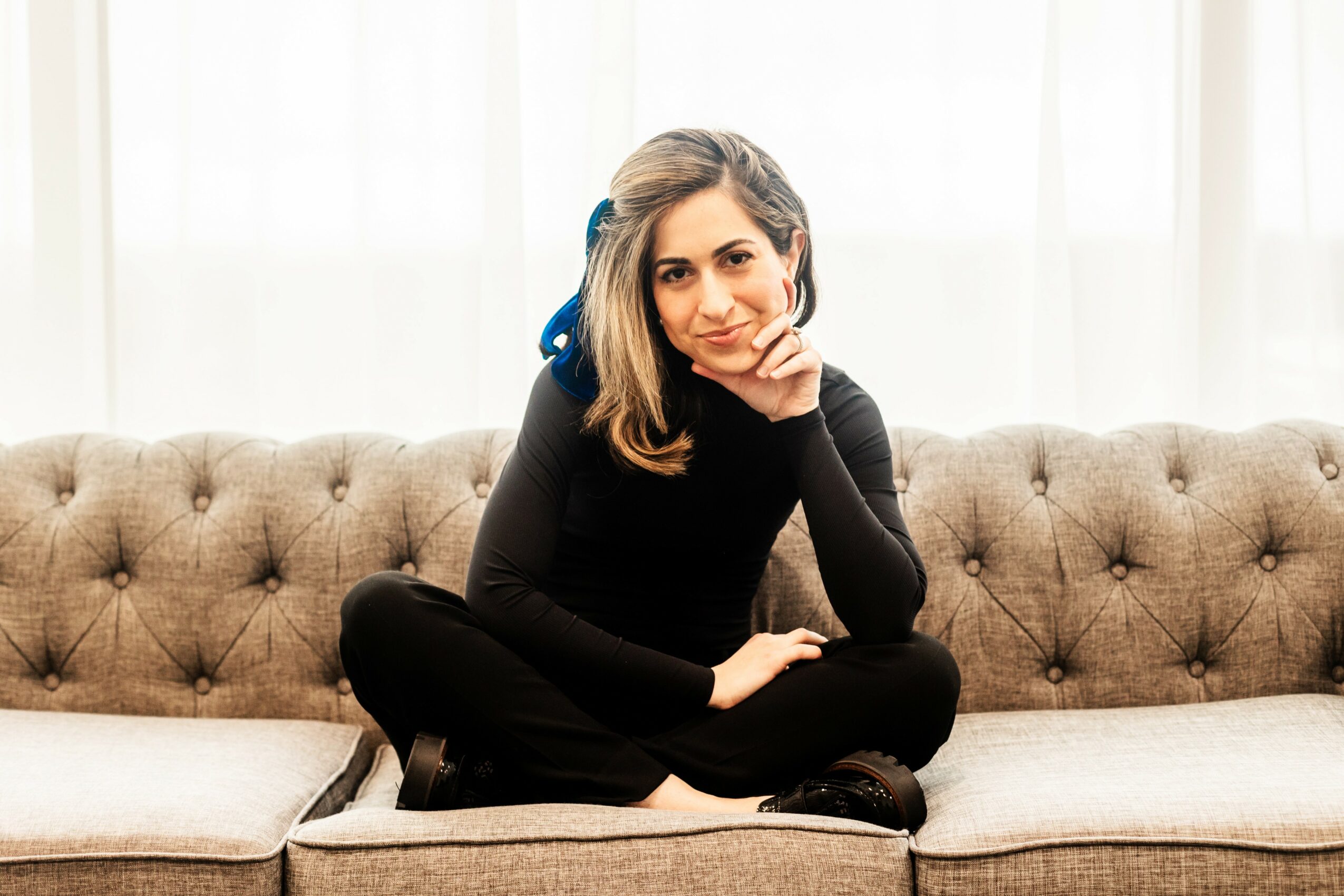
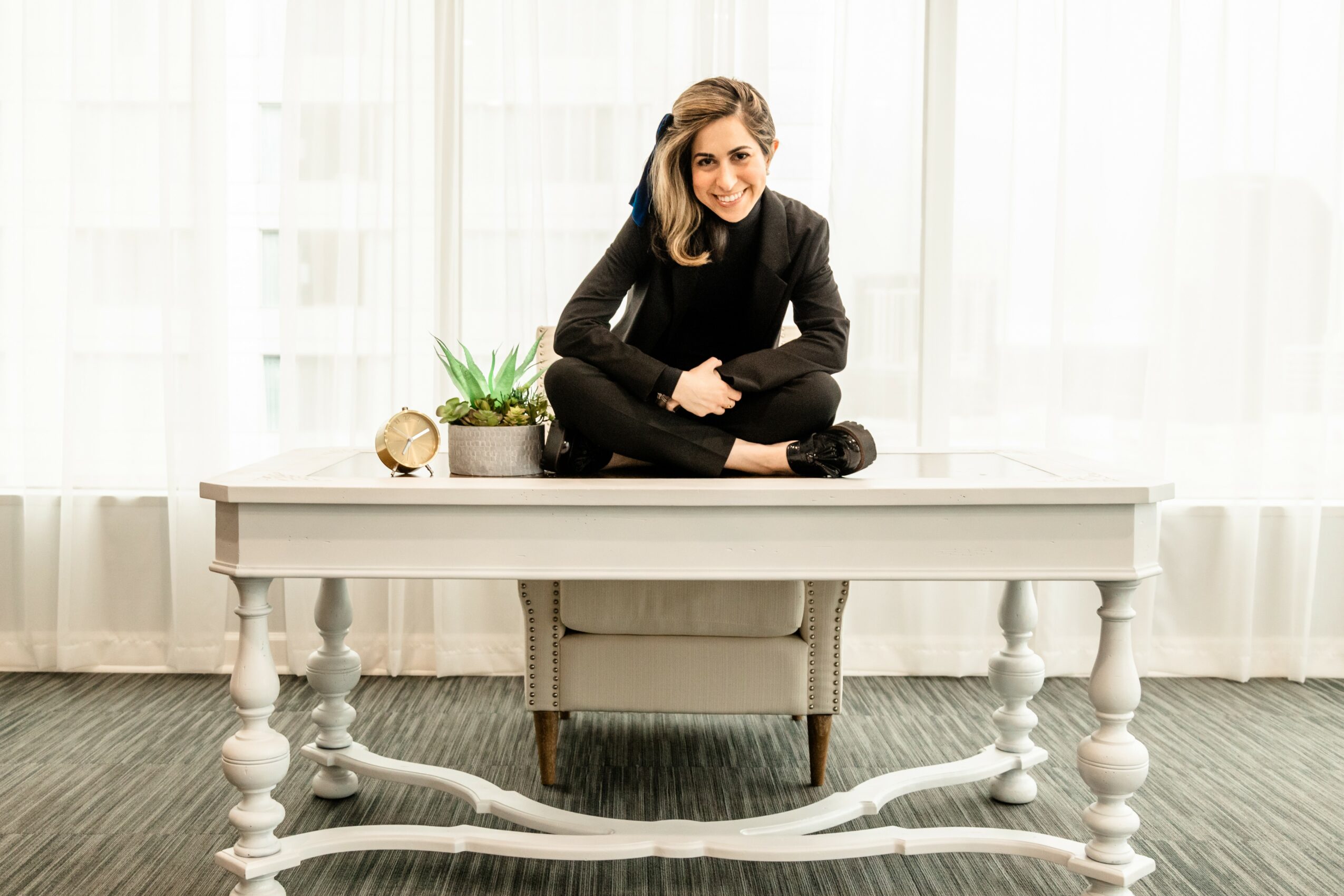
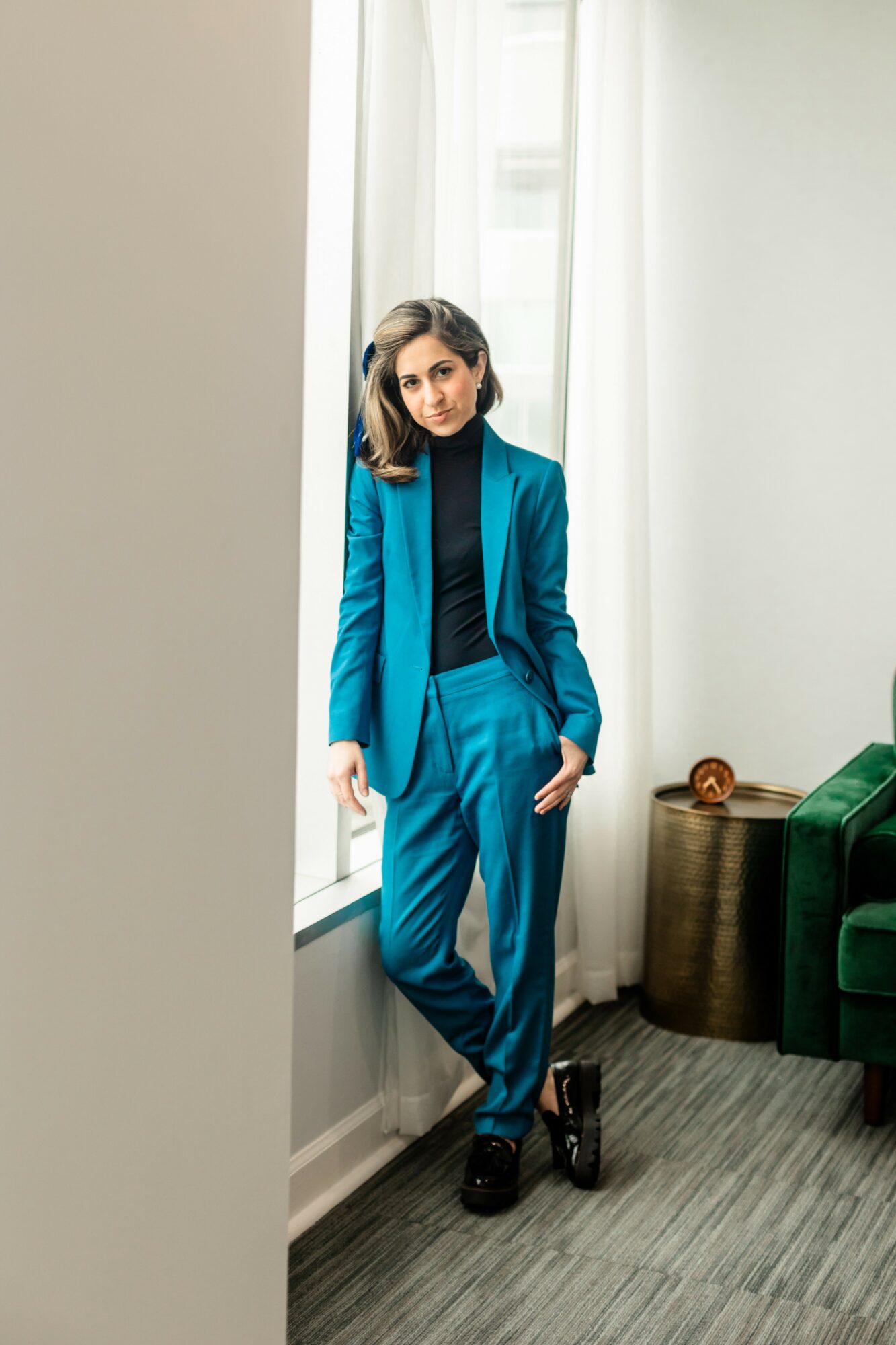
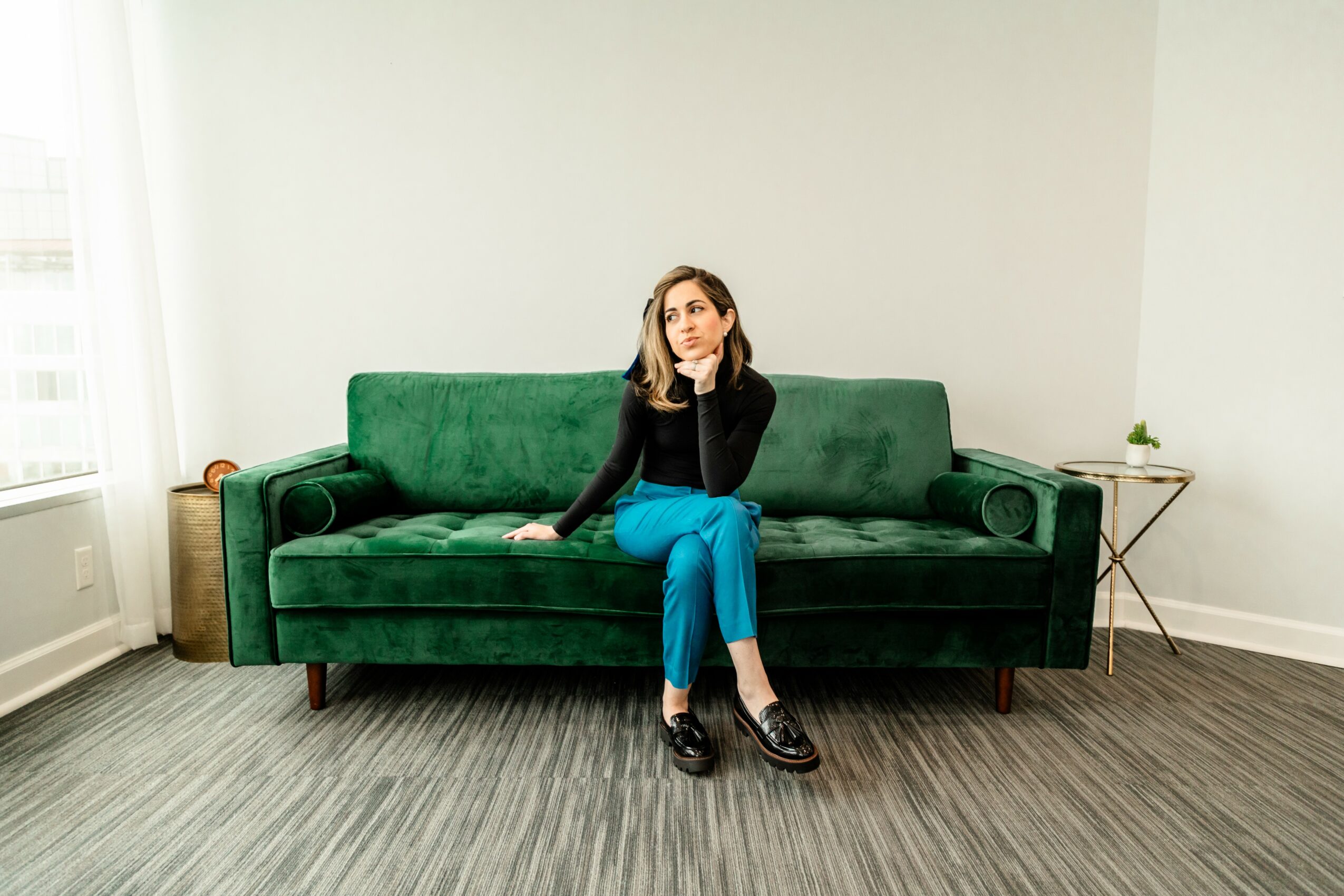
Image Credits
Paige Brigman of One Love Photography

